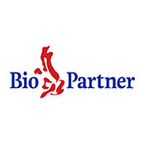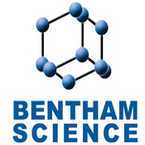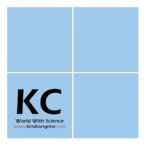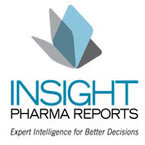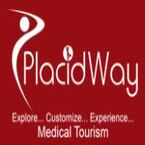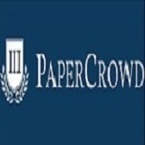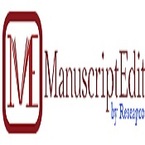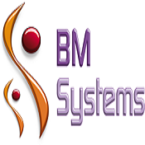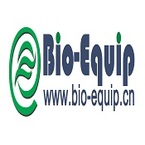Theme: Exploring Innovative Ideas and Remedies for Addictive Disorders
Addiction Congress 2024
Track 1: ADDICTIVE DISORDERS
Addictive disorders, such as substance abuse and dependence, are common disorders that involve the overuse of alcohol and drugs. Addiction develops over time and is a chronic and relapsing illness. In most cases, people with addictions frequently suffer from a mental illness, such as depression, anxiety or another disorder. Addictive disorders are caused by multiple factors, including genetic vulnerability, environmental stressors, social pressures, individual personality characteristics and psychiatric problems.
From a neurological standpoint, addictive disorders arise when a substance changes the way the user’s brain feels pleasure. Addictive substances alter the brain’s ability to send and receive chemicals called neurotransmitters, which cause pleasure. The addictive substances can prevent nerves in the brain (called neurons) from receiving these neurotransmitters, meaning the drug user relies on the drug, rather than his or her natural brain chemicals, for feelings of pleasure.
Related Addiction Conferences:
Addiction Congress 2024 Physiology Conference, Addictive Disorders Conference, Addiction Therapy Conferences, Psychiatry Conferences, Drug Addiction Congress, Addiction Conferences, Addiction Meetings, Addiction Events, Addiction Online Events, Addiction Webinars, Addiction Europe Conferences, Europe Conferences 2024
Related Associations and Societies:
Alcoholism and Substance Abuse Providers of New York State (ASANYS), American Academy of Addiction Psychiatry (AAAP), American Academy of Healthcare Providers in the Addictive Disorders, American Association for the Treatment of Opioid Dependence (AATOD), American Psychiatric Association (APA), American Society of Addiction Medicine (ASAM), European Opiate Addiction Treatment Association (EurOPAD).
Track 2: ADDICTION PSYCHIATRY
Addiction psychiatry is a medical sub specialty that focuses on the analysis, diagnosis, and treatment of individuals who suffer from one or a lot of mental illness or disorders associated with addiction. This might embody mental disorders involving legal and non-legal medicine, gambling, sex, food, and different impulse management disorders. Growing amounts of knowledge domain, like the health effects and coverings to habit, have led to advancements within the field of addiction.
Related Addiction Conferences:
Addiction Congress 2024 Physiology Conference, Addictive Disorders Conference, Addiction Therapy Conferences, Psychiatry Conferences, Drug Addiction Congress, Addiction Conferences, Addiction Meetings, Addiction Events, Addiction Online Events, Addiction Webinars, Addiction Europe Conferences, Europe Conferences 2024
Related Associations and Societies:
Alcoholism and Substance Abuse Providers of New York State (ASANYS), American Academy of Addiction Psychiatry (AAAP), American Academy of Healthcare Providers in the Addictive Disorders, American Association for the Treatment of Opioid Dependence (AATOD), American Psychiatric Association (APA), American Society of Addiction Medicine (ASAM), European Opiate Addiction Treatment Association (EurOPAD).
Track 3: DRUG ADDICTION
Drug addiction is a complex, chronic condition characterized by compulsive drug seeking, use, and disregard for consequences. It alters brain function, leading to intense cravings and a need for increasing amounts of the substance. This dependence can significantly impact an individual's physical and mental health, relationships, and daily functioning. Recovery often requires a comprehensive approach, including medical treatment, therapy, and support systems. Understanding and addressing the underlying psychological, social, and genetic factors contributing to addiction is crucial for effective treatment. Overcoming addiction is challenging but achievable with the right support, resources, and personal commitment to change.
Related Addiction Conferences:
Addiction Congress 2024 Physiology Conference, Addictive Disorders Conference, Addiction Therapy Conferences, Psychiatry Conferences, Drug Addiction Congress, Addiction Conferences, Addiction Meetings, Addiction Events, Addiction Online Events, Addiction Webinars, Addiction Europe Conferences, Europe Conferences 2024
Related Associations and Societies:
Alcoholism and Substance Abuse Providers of New York State (ASANYS), American Academy of Addiction Psychiatry (AAAP), American Academy of Healthcare Providers in the Addictive Disorders, American Association for the Treatment of Opioid Dependence (AATOD), American Psychiatric Association (APA), American Society of Addiction Medicine (ASAM), European Opiate Addiction Treatment Association (EurOPAD).
Track 4: MENTAL HEALTH
Mental health includes our emotional, psychological, and social well-being. It affects how we think, feel, and act. It also helps determine how we handle stress, relate to others, and make choices. Mental health is important at every stage of life, from childhood and adolescence through adulthood. Over the course of our life, if we experience mental health problems, our thinking, mood, and behaviour could be affected. Many factors contribute to mental health problems, including Biological factors, such as genes or brain chemistry, Life experiences, such as trauma or abuse, Family history of mental health problems.
Related Addiction Conferences:
Addiction Congress 2024 Physiology Conference, Addictive Disorders Conference, Addiction Therapy Conferences, Psychiatry Conferences, Drug Addiction Congress, Addiction Conferences, Addiction Meetings, Addiction Events, Addiction Online Events, Addiction Webinars, Addiction Europe Conferences, Europe Conferences 2024
Related Associations and Societies:
Alcoholism and Substance Abuse Providers of New York State (ASANYS), American Academy of Addiction Psychiatry (AAAP), American Academy of Healthcare Providers in the Addictive Disorders, American Association for the Treatment of Opioid Dependence (AATOD), American Psychiatric Association (APA), American Society of Addiction Medicine (ASAM), European Opiate Addiction Treatment Association (EurOPAD).
Track 5: ADDICTION THERAPY
Addiction is a multifaceted problem, but one that can be treated effectively. Addiction therapy methodologies and related researches help addicted individuals stopping compulsive drug seeking and use. Medications can be an important part of treatment to address drug abuse or the mental health aspects underlying substance use. Counseling and behavioral therapies are highly utilized and the best available treatment options for drug abuse. Addiction treatment and enhancing skills of individuals involved in addiction therapy and research to regulate patient’s emotions to enhance readiness to stop addiction and turn their lives in a new direction. Moreover, there are enormous obstacles the doctors, counsellors and scientists face prominently in exploring the individual needs of each patient and providing opportunities to access diverse therapeutic options out in the community as well.
Related Addiction Conferences:
Addiction Congress 2024 Physiology Conference, Addictive Disorders Conference, Addiction Therapy Conferences, Psychiatry Conferences, Drug Addiction Congress, Addiction Conferences, Addiction Meetings, Addiction Events, Addiction Online Events, Addiction Webinars, Addiction Europe Conferences, Europe Conferences 2024
Related Associations and Societies:
Alcoholism and Substance Abuse Providers of New York State (ASANYS), American Academy of Addiction Psychiatry (AAAP), American Academy of Healthcare Providers in the Addictive Disorders, American Association for the Treatment of Opioid Dependence (AATOD), American Psychiatric Association (APA), American Society of Addiction Medicine (ASAM), European Opiate Addiction Treatment Association (EurOPAD).
Track 6: SUBSTANCE INDUCED PSYCHOSIS
Drug-induced psychosis, also known as substance-induced psychotic disorder, is simply any psychotic episode that is related to the abuse of an intoxicant. This can occur from taking too much of a certain drug, having an adverse reaction after mixing substances, during withdrawal from a drug, or if the individual has underlying mental health issues. Substance abuse is defined as any use of an illicit intoxicant, any use of prescription medication outside the direction of a doctor, or excessive use of legal substances such as alcohol. Though it’s not actually true that taking a certain kind of drug can suddenly trigger a severe mental illness where none had existed, mental illness is a predictor of substance abuse, and someone prone to psychosis can be triggered by becoming overly intoxicated.
Related Addiction Conferences:
Addiction Congress 2024 Physiology Conference, Addictive Disorders Conference, Addiction Therapy Conferences, Psychiatry Conferences, Drug Addiction Congress, Addiction Conferences, Addiction Meetings, Addiction Events, Addiction Online Events, Addiction Webinars, Addiction Europe Conferences, Europe Conferences 2024
Related Associations and Societies:
Alcoholism and Substance Abuse Providers of New York State (ASANYS), American Academy of Addiction Psychiatry (AAAP), American Academy of Healthcare Providers in the Addictive Disorders, American Association for the Treatment of Opioid Dependence (AATOD), American Psychiatric Association (APA), American Society of Addiction Medicine (ASAM), European Opiate Addiction Treatment Association (EurOPAD).
Track 7: BEHAVIORAL ADDICTION
Behavioral addictions or non-substance addictions, like gambling addiction, are a set of behaviors that a person becomes dependent on and craves. This is also known as Non-Substance Addictions or addictive behaviors, there are certain actions out there that people have found to be addictive. These can include Food, Gaming, Plastic Surgery, Sex, Social Media, Gambling, Internet, Risks, Shopping, Pornograpy. Behavioral addictions have similar effects to substance addictions on relationships, which are often neglected in favour of the addictive behavior, undermining trust and putting pressure on partners and other family members to cover up and make up for difficulties arising from the addiction.
Related Addiction Conferences:
Addiction Congress 2024 Physiology Conference, Addictive Disorders Conference, Addiction Therapy Conferences, Psychiatry Conferences, Drug Addiction Congress, Addiction Conferences, Addiction Meetings, Addiction Events, Addiction Online Events, Addiction Webinars, Addiction Europe Conferences, Europe Conferences 2024
Related Associations and Societies:
Alcoholism and Substance Abuse Providers of New York State (ASANYS), American Academy of Addiction Psychiatry (AAAP), American Academy of Healthcare Providers in the Addictive Disorders, American Association for the Treatment of Opioid Dependence (AATOD), American Psychiatric Association (APA), American Society of Addiction Medicine (ASAM), European Opiate Addiction Treatment Association (EurOPAD).
Track 8: PSYCHIATRIC DISORDER
Psychotic disorders are a group of syndromes characterized by positive symptoms, including hallucinations, delusions, and thought disorder; and negative symptoms, including mood symptoms, social withdrawal, and reduced motivation. Cognitive deficits also appear with psychotic disorders. Psychotic disorders rank 22nd in the World Health Organization's list of worldwide causes of disability. This ranking is adjusted for the relatively low lifetime prevalence rate for psychosis; the perceived burden of the disease on those affected with psychotic disorders, as well as their relatives and caregivers, is much higher. Some symptoms are present, albeit in an attenuated form, prior to the onset of a diagnosable disorder. Features of psychotic disorders are detectable in the general population and are referred to as schizotypal traits, representing a normally distributed trait of risk for psychosis.
A recent large study of patients in their first episode of psychosis found a 74% lifetime prevalence of a substance use disorder, with 62% of the sample presenting at baseline with current substance use. Alcohol, nicotine, and cannabis are the predominant substances abused by patients with psychotic disorders. A US epidemiology study reported the risk for substance use as 4.6 fold higher in patients with schizophrenia compared with the general population. Even in Sweden, where there are tight restrictions on the sale of alcohol, patient consumption far exceeds rates reported in the general population.
Related Addiction Conferences:
Addiction Congress 2024 Physiology Conference, Addictive Disorders Conference, Addiction Therapy Conferences, Psychiatry Conferences, Drug Addiction Congress, Addiction Conferences, Addiction Meetings, Addiction Events, Addiction Online Events, Addiction Webinars, Addiction Europe Conferences, Europe Conferences 2024
Related Associations and Societies:
Alcoholism and Substance Abuse Providers of New York State (ASANYS), American Academy of Addiction Psychiatry (AAAP), American Academy of Healthcare Providers in the Addictive Disorders, American Association for the Treatment of Opioid Dependence (AATOD), American Psychiatric Association (APA), American Society of Addiction Medicine (ASAM), European Opiate Addiction Treatment Association (EurOPAD).
Track 9: PHYSIOLOGY OF ADDICTION
Addiction involves complex physiological processes affecting the brain's reward system. Key neurotransmitters like dopamine play a crucial role; addictive substances often artificially elevate dopamine levels, leading to intense pleasure. Over time, the brain's natural reward pathways become altered, diminishing the effect of everyday rewards and increasing cravings for the substance. Chronic exposure to addictive substances can cause structural changes in the brain, impairing decision-making and impulse control. These neuroadaptations contribute to compulsive behavior and the difficulty of overcoming addiction, as the brain's wiring becomes increasingly oriented towards seeking and using the substance despite adverse consequences.
Related Associations and Societies:
Alcoholism and Substance Abuse Providers of New York State (ASANYS), American Academy of Addiction Psychiatry (AAAP), American Academy of Healthcare Providers in the Addictive Disorders, American Association for the Treatment of Opioid Dependence (AATOD), American Psychiatric Association (APA), American Society of Addiction Medicine (ASAM), European Opiate Addiction Treatment Association (EurOPAD).
Track 10: CHILD PSYCHOLOGY AND CHILD MENTAL HEALTH
Child psychology is one of the many branches of psychology and one of the most frequently studied specialty areas. This particular branch focuses on the mind and behavior of children from prenatal development through adolescence. Child psychology deals not only with how children grow physically, but with their mental, emotional, and social development as well. The major subjects that are essential to the study of child psychology are Cognitive development, Environmental influences, Gender Roles, Genetics, Language, Personality development, Prenatal development, Social Growth, Sexual Development.
Mental health in childhood means reaching developmental and emotional milestones, and learning healthy social skills and how to cope when there are problems. Mental health problems affect about 1 in 10 children and young people. They include depression, anxiety and conduct disorder, and are often a direct response to what is happening in their lives. Neuropsychiatric conditions are the leading cause of disability in young people in all regions. The emotional wellbeing of children is just as important as their physical health. Good mental health allows children and young people to develop the resilience to cope with whatever life throws at them and grow into well-rounded, healthy adults.
Related Addiction Conferences:
Addiction Congress 2024 Physiology Conference, Addictive Disorders Conference, Addiction Therapy Conferences, Psychiatry Conferences, Drug Addiction Congress, Addiction Conferences, Addiction Meetings, Addiction Events, Addiction Online Events, Addiction Webinars, Addiction Europe Conferences, Europe Conferences 2024
Related Associations and Societies:
Alcoholism and Substance Abuse Providers of New York State (ASANYS), American Academy of Addiction Psychiatry (AAAP), American Academy of Healthcare Providers in the Addictive Disorders, American Association for the Treatment of Opioid Dependence (AATOD), American Psychiatric Association (APA), American Society of Addiction Medicine (ASAM), European Opiate Addiction Treatment Association (EurOPAD).
Track 11: ANXIETY DISORDER, DEPRESSION AND SUICIDE
Anxiety disorders are mental health conditions that involve excessive amounts of anxiety, fear, nervousness, worry, or dread. Anxiety that is too constant or too intense can cause a person to feel preoccupied, distracted, tense, and always on alert. Anxiety disorders are among the most common mental health conditions. They affect people of all age’s adults, children, and teens. Anxiety disorders often co-occur with depression as well as eating disorders, attention-deficit/hyperactivity disorder (ADHD) and others. Anxiety disorders have consistently been associated with an increase in suicidal behavior in cross-sectional community and clinical studies.
Depression is a mood disorder that causes a persistent feeling of sadness and loss of interest. Also called major depressive disorder or Clinical depression, it affects how you feel, think and behave and can lead to a variety of emotional and physical problems. Each year about 6.7% of U.S. adults experience major depressive disorder. Women are 70% more likely than men to experience depression during their lifetime. Persistent depressive disorders, including chronic major depressive disorder and dysthymic disorder, are characterized by chronic sadness and other symptoms of major depression.
Affective disorders, Substance misuse, Anxiety disorders, Depression, certain personality disorders, and psychotic disorders are all established risk factors for suicide attempts. Anxiety disorders, especially panic disorder and PTSD, are associated with suicide attempts. Clinicians need to carefully assess for suicidal ideation and attempts among patients presenting with anxiety and depression problems and assess for anxiety, most notably panic disorder and PTSD, with patients in suicidal crisis.
Related Addiction Conferences:
Addiction Congress 2024 Physiology Conference, Addictive Disorders Conference, Addiction Therapy Conferences, Psychiatry Conferences, Drug Addiction Congress, Addiction Conferences, Addiction Meetings, Addiction Events, Addiction Online Events, Addiction Webinars, Addiction Europe Conferences, Europe Conferences 2024
Related Associations and Societies:
Alcoholism and Substance Abuse Providers of New York State (ASANYS), American Academy of Addiction Psychiatry (AAAP), American Academy of Healthcare Providers in the Addictive Disorders, American Association for the Treatment of Opioid Dependence (AATOD), American Psychiatric Association (APA), American Society of Addiction Medicine (ASAM), European Opiate Addiction Treatment Association (EurOPAD).
Tack 12: ADDICTION REHABILITATION & RECOVERY
Drug rehabilitation is the process of medical or psychotherapeutic treatment for dependency on psychoactive substances such as alcohol, prescription drugs, and street drugs such as cannabis, cocaine, heroin or amphetamines. The general intent is to enable the patient to confront substance dependence, if present, and cease substance abuse to avoid the psychological, legal, financial, social, and physical consequences that can be caused, especially by extreme abuse. Treatment includes medication for depression or other disorders, counseling by experts and sharing of experience with other addicts.
Recovery is a lifelong process of improving health and well-being while living independently. Many people suffering from addiction achieve sobriety. Recovery is more difficult. It involves changing your outlook on life, your behavior and in some cases your environment. Recovery is different for everyone. It’s a highly individualized process that is influenced by numerous factors, including the type, severity and duration of addiction. Everyone can recover from addiction. It starts with a desire for change and a belief that you can overcome the disease. With effective treatment, a safe environment and support, you can live a more fulfilling life.
Related Addiction Conferences:
Addiction Congress 2024 Physiology Conference, Addictive Disorders Conference, Addiction Therapy Conferences, Psychiatry Conferences, Drug Addiction Congress, Addiction Conferences, Addiction Meetings, Addiction Events, Addiction Online Events, Addiction Webinars, Addiction Europe Conferences, Europe Conferences 2024
Related Associations and Societies:
Alcoholism and Substance Abuse Providers of New York State (ASANYS), American Academy of Addiction Psychiatry (AAAP), American Academy of Healthcare Providers in the Addictive Disorders, American Association for the Treatment of Opioid Dependence (AATOD), American Psychiatric Association (APA), American Society of Addiction Medicine (ASAM), European Opiate Addiction Treatment Association (EurOPAD).
Track 13: ADDICTION AND YOUTH
The risk for developing an addiction is exceptionally high during the adolescent and young adult years, and worldwide families and communities are suffering because of addiction's widespread impact. An overwhelming majority of those addicted to porn and illicit drugs like opium, heroin and cheaper synthetic substances fall between 15 and 35 years old. Studies indicate that young people are four times more likely to become addicts. As we grow up, brain determines which biochemical it needs to stay healthy. The most important of these chemicals called Neurotransmitters. They play a major role in everyday functions like eating, sleeping and overall mood. When drugs are introduced to a developing mind, the brain may mistake the substances as important neurotransmitters. The brain then programs itself to depend on these substances to perform certain functions, causing the individual to crave drugs.
Drug abuse can cause a variety of long-term problems for teens. The most severe consequence is death whether it’s by overdose, traffic accidents, crime-related activity or other causes. When left untreated, drug or alcohol addiction can cause potentially fatal health issues, including stroke, heart disease and liver failure. Teens who abuse drugs get into accidents at a high rate. They die from suicide, accidents and illness much more often than teens who avoid drugs. Adolescents who share needles and other drug paraphernalia can contract diseases, such as hepatitis and HIV. Many drugs also damage the body’s immune system, making it more difficult to recover from minor illnesses.
Related Addiction Conferences:
Addiction Congress 2024 Physiology Conference, Addictive Disorders Conference, Addiction Therapy Conferences, Psychiatry Conferences, Drug Addiction Congress, Addiction Conferences, Addiction Meetings, Addiction Events, Addiction Online Events, Addiction Webinars, Addiction Europe Conferences, Europe Conferences 2024
Related Associations and Societies:
Alcoholism and Substance Abuse Providers of New York State (ASANYS), American Academy of Addiction Psychiatry (AAAP), American Academy of Healthcare Providers in the Addictive Disorders, American Association for the Treatment of Opioid Dependence (AATOD), American Psychiatric Association (APA), American Society of Addiction Medicine (ASAM), European Opiate Addiction Treatment Association (EurOPAD).
Track 14: SCHIZOPHRENIA, PSTD and ADHD
Schizophrenia is a chronic and severe mental disorder affecting 20 million people worldwide. Schizophrenia is characterized by distortions in thinking, perception, emotions, language, sense of self and behaviour. Common experiences include hallucinations (hearing voices or seeing things that are not there) and delusions (fixed false beliefs). People with schizophrenia are 2-3 times more likely to die early than the general population. When coupled with substance addiction, these two conditions can be dangerous and even deadly. This co-occurrence has been a heavily debated topic for decades. Most researchers feel substances such as drugs and alcohol do not cause schizophrenia; instead, people living with mental illness use substances as a coping mechanism. However, some researchers have also concluded that it could occur the other way around and have found that substance abuse can increase the risk of developing schizophrenia.
Post-traumatic stress disorder (PTSD) is a mental health condition that's triggered by a terrifying event either experiencing it or witnessing it. Symptoms may include flashbacks, nightmares and severe anxiety, as well as uncontrollable thoughts about the event. Attention deficit hyperactivity disorder (ADHD) is a mental health disorder that can cause above-normal levels of hyperactive and impulsive behaviors. People with ADHD may also have trouble focusing their attention on a single task or sitting still for long periods of time. Both adults and children can have ADHD.
Related Addiction Conferences:
Addiction Congress 2023, Addictive Disorders Conference, Addiction Therapy Conferences, Psychiatry Conferences, Drug Addiction Congress, Addiction Conferences, Addiction Meetings, Addiction Events, Addiction Online Events, Addiction Webinars, Addiction Europe Conferences, Europe Conferences 2023.
Track 15: ALCOHOLISM AND SUBSTANCE ABUSE
Alcohol and substance abuse are two problems that are incredibly common among all age groups and people from all backgrounds, both on their own and in combination with one another. People who struggle with alcohol abuse or addiction frequently use other substances as well, which may include prescription drugs, over-the-counter drugs, or illicit street drugs. When multiple substances are combined, it amplifies the risk of adverse side effects, as well as overdose and death. Alcohol and substance abuse that occur together are often referred to as Polydrug abuse or Polysubstance abuse, and for someone who regularly engages in the mixing of alcohol and substances, it’s referred to as chronic Polysubstance abuse.
Related Associations and Societies:
Alcoholism and Substance Abuse Providers of New York State (ASANYS), American Academy of Addiction Psychiatry (AAAP), American Academy of Healthcare Providers in the Addictive Disorders, American Association for the Treatment of Opioid Dependence (AATOD), American Psychiatric Association (APA), American Society of Addiction Medicine (ASAM), European Opiate Addiction Treatment Association (EurOPAD).
Track 16: TYPES OF ADDICTION
Addiction types encompass various forms of compulsive behavior involving substances or activities. Substance addictions include dependence on drugs such as alcohol, opioids, cocaine, and nicotine. Behavioral addictions involve compulsive activities like gambling, shopping, or internet use. These addictions impact daily functioning and mental health, often requiring specialized treatment. Both types disrupt normal life, affecting relationships, work, and overall well-being. Treatment strategies vary but typically include therapy, support groups, and sometimes medication. Recognizing and addressing the specific nature of addiction is crucial for effective intervention and recovery, as each type presents unique challenges and requires tailored approaches.
Related Addiction Conferences:
Addiction Congress 2024 Physiology Conference, Addictive Disorders Conference, Addiction Therapy Conferences, Psychiatry Conferences, Drug Addiction Congress, Addiction Conferences, Addiction Meetings, Addiction Events, Addiction Online Events, Addiction Webinars, Addiction Europe Conferences, Europe Conferences 2024
Related Associations and Societies:
Alcoholism and Substance Abuse Providers of New York State (ASANYS), American Academy of Addiction Psychiatry (AAAP), American Academy of Healthcare Providers in the Addictive Disorders, American Association for the Treatment of Opioid Dependence (AATOD), American Psychiatric Association (APA), American Society of Addiction Medicine (ASAM), European Opiate Addiction Treatment Association (EurOPAD).
Track 17: SOCIAL MEDIA ADDICTION
Problematic social media use, also known as social media addiction or social media overuse, is a proposed form of psychological or behavioral dependence on social media platforms, also known as Internet addiction disorder, and other forms of digital media overuse. It is generally defined as the compulsive use of social media platforms that results in significant impairment in an individual's function in various life domains over a prolonged period. Excessive social media use has not been recognized as a disorder by the World Health Organization or the Diagnostic and Statistical Manual of Mental Disorders (DSM-5).
Controversies around problematic social media use include whether the disorder is a separate clinical entity or a manifestation of underlying psychiatric disorders. Many studies on social media usage and mental health have shown that the prolonged use of social media such as Facebook is positively associated with mental health problems such as stress, anxiety, and depression and negatively associated with long-term well-being.
Related Addiction Conferences:
Addiction Congress 2024 Physiology Conference, Addictive Disorders Conference, Addiction Therapy Conferences, Psychiatry Conferences, Drug Addiction Congress, Addiction Conferences, Addiction Meetings, Addiction Events, Addiction Online Events, Addiction Webinars, Addiction Europe Conferences, Europe Conferences 2024
Related Associations and Societies:
Alcoholism and Substance Abuse Providers of New York State (ASANYS), American Academy of Addiction Psychiatry (AAAP), American Academy of Healthcare Providers in the Addictive Disorders, American Association for the Treatment of Opioid Dependence (AATOD), American Psychiatric Association (APA), American Society of Addiction Medicine (ASAM), European Opiate Addiction Treatment Association (EurOPAD).
Track 18: STRESS AND SLEEP DISORDERS
Stress is a complex condition with emotional, cognitive, and biological factors. Excessive stress causes long- and short-term disability in the various human systems, and activates the defence system of the central nervous system. The stress responses differ depending on the type of stress and the individual's physiological responses. These latter responses consist of neuro-endocrine and behavioral responses, and include the changes in the activity and immune function of the Hypothalamo Pituitary Adrenal (HPA) axis. Stress and anxiety often lead to insomnia and sleep problems.
Sleep is an important component of human homeostasis. Sleep disorders are closely associated with significant medical, psychological and social disturbances. Chronic sleep restriction is an increasing problem in many countries. Since the body's stress systems play a critical role in adapting to a continuously changing and challenging environment, it is an important question whether these systems are affected by sleep loss.
Related Addiction Conferences:
Addiction Congress 2024 Physiology Conference, Addictive Disorders Conference, Addiction Therapy Conferences, Psychiatry Conferences, Drug Addiction Congress, Addiction Conferences, Addiction Meetings, Addiction Events, Addiction Online Events, Addiction Webinars, Addiction Europe Conferences, Europe Conferences 2024
Related Associations and Societies:
Alcoholism and Substance Abuse Providers of New York State (ASANYS), American Academy of Addiction Psychiatry (AAAP), American Academy of Healthcare Providers in the Addictive Disorders, American Association for the Treatment of Opioid Dependence (AATOD), American Psychiatric Association (APA), American Society of Addiction Medicine (ASAM), European Opiate Addiction Treatment Association (EurOPAD).
Track 19: ADDICTION CASE REPORTS
According to World Drugs report for 2012, 230 million people around the world 1 in 20 in US took illicit drugs in the last year. The report also says that problem drug users, mainly heroin and cocaine-dependent people number about 27 million, roughly 0.6% of the world adult population. That’s 1 in every 200 people. The harmful use of alcohol results in 3.3 million deaths each year. On average every person in the world aged 15 years or older drinks 6.2 litres of pure alcohol per year. Less than half the population (38.3%) actually drinks alcohol, this means that those who do drink consume on average 17 litres of pure alcohol annually. At least 15.3 million persons have drug use disorders. Injecting drug use reported in 148 countries, of which 120 report HIV infection among this population. Current Addiction Reports offers expert reviews on the latest progress on the prevention, assessment and diagnosis, and treatment of addiction.
Related Addiction Conferences:
Addiction Congress 2024 Physiology Conference, Addictive Disorders Conference, Addiction Therapy Conferences, Psychiatry Conferences, Drug Addiction Congress, Addiction Conferences, Addiction Meetings, Addiction Events, Addiction Online Events, Addiction Webinars, Addiction Europe Conferences, Europe Conferences 2024
Related Associations and Societies:
Alcoholism and Substance Abuse Providers of New York State (ASANYS), American Academy of Addiction Psychiatry (AAAP), American Academy of Healthcare Providers in the Addictive Disorders, American Association for the Treatment of Opioid Dependence (AATOD), American Psychiatric Association (APA), American Society of Addiction Medicine (ASAM), European Opiate Addiction Treatment Association (EurOPAD).
Track 20: ADDICTION RECOVERY PROGRAMS
Addiction recovery programs are structured approaches designed to help individuals overcome substance abuse and rebuild their lives. These programs often include a combination of medical treatment, behavioral therapy, and support groups. They may involve detoxification, where the body clears the drug, followed by counseling to address underlying issues and develop coping strategies. Support groups like Alcoholics Anonymous (AA) or Narcotics Anonymous (NA) offer community and shared experiences. Tailored programs may address specific needs, such as dual diagnosis for co-occurring mental health disorders. Successful recovery requires a holistic approach, ongoing support, and personal commitment to achieving and maintaining sobriety.
Related Addiction Conferences:
Addiction Congress 2024 Physiology Conference, Addictive Disorders Conference, Addiction Therapy Conferences, Psychiatry Conferences, Drug Addiction Congress, Addiction Conferences, Addiction Meetings, Addiction Events, Addiction Online Events, Addiction Webinars, Addiction Europe Conferences, Europe Conferences 2024
Related Associations and Societies:
Alcoholism and Substance Abuse Providers of New York State (ASANYS), American Academy of Addiction Psychiatry (AAAP), American Academy of Healthcare Providers in the Addictive Disorders, American Association for the Treatment of Opioid Dependence (AATOD), American Psychiatric Association (APA), American Society of Addiction Medicine (ASAM), European Opiate Addiction Treatment Association (EurOPAD).
Track 21: CURRENT ADDICTION RESEARCH
New advances in scientific discipline and neurobiology have shed light-weight on the changes that semi-permanent use of alcohol and different medicine brings into the brain particularly in brain reward system, to foster continued and chronic patterns of compulsive abuse. New analysis topics in addiction embody activity pharmacological medicine analysis, Relationship between youth violence and misuse, impact of alcohol on psychological feature functioning and cocaine vaccines and addiction medicine analysis. Activity pharmacological medicine analysis implies broad-based misuse clinical analysis program encompassing each human laboratory analysis and patient treatment analysis. Cocaine abuse is associate in progress and high drawback thus vaccines against cocaine are being developed.
Related Addiction Conferences:
Addiction Congress 2024 Physiology Conference, Addictive Disorders Conference, Addiction Therapy Conferences, Psychiatry Conferences, Drug Addiction Congress, Addiction Conferences, Addiction Meetings, Addiction Events, Addiction Online Events, Addiction Webinars, Addiction Europe Conferences, Europe Conferences 2024
Related Associations and Societies:
Alcoholism and Substance Abuse Providers of New York State (ASANYS), American Academy of Addiction Psychiatry (AAAP), American Academy of Healthcare Providers in the Addictive Disorders, American Association for the Treatment of Opioid Dependence (AATOD), American Psychiatric Association (APA), American Society of Addiction Medicine (ASAM), European Opiate Addiction Treatment Association (EurOPAD).
In the Global Market Brain disorders caused by Addiction and Addiction induced neurological disorders cost $ 500-700 billion and Europe alone spends 6 billion euros per year. Addiction Diagnosis, Treatment, Recovery, and Rehabilitation business has been on rising in recent years. Anxiety and psychotic disorders cost 76 billion euros to Europe. Yoga retreat therapy alone does the business of $ 27-30 billion in the USA in a year. There is also a lot of research is going on combating addiction disorders of alcohol, cocaine, opioid, methamphetamine, cannabis, and tobacco using new neuro-receptors/peptides and antibody therapies. Around 280 million people in the part of America and Europe are at the danger of addiction habit of drugs for non-medical use. The United States of America have around 14000-15000 rehab centers which did the business of $35 billion in the year of 2016. The Europe spends 212.6 billion euros per year for the addiction induced neurological disorders. Alcohol and illegal drug addiction treatments cost European people more than 76 billion euros.
The global drug addiction treatment market is forecast to reach USD 31.17 Billion by 2027, according to a new report by Reports and Data. Drug addiction can be defined as the condition that affects the behaviour and brain of an individual. When an individual is addicted to a drug, he/she fails in controlling the urge to use it, in spite of knowing the harm related to the use of those drugs. The condition is not just about cocaine, heroin, or the use of other illegal drugs. Addiction to nicotine, opioid painkillers, alcohol, and other legal substances may also result in the condition. Continuous exposure to these drugs results in effecting the ability of the functioning of their brain, which leads to their lack of failure in controlling their urge to take the drug. The mentioned change in the functioning of the brain occurs over a period of time. It may result in losing self-control among individuals and lead to damaging behaviours. The extent to which an individual becomes addicted or how quick an individual gets addicted is dependent on the type of drug being consumed.
Drugs like opioid painkillers have a higher risk and result in quick addiction as compared to the other types of drugs. The term drug addiction is often interchangeably used with drug abuse. Drug abuse is when an individual uses illegal or legal substances in ways in ways he/she shouldn’t. On the other hand, addiction is when an individual fails in stopping the consumption of these drugs. Thus, various supporting factors like the government initiatives and rise in awareness about drug addiction and technological developments in the diagnostic industry are boosting the growth of the market. In context to region, Europe can be seen to occupy a significant portion of the market. The market share held by the region is attributed to the continuously expanding healthcare market, increasing investments in the healthcare sector, and elevating focus on R&D activities, which are supporting the growth of the market in this region.
The Drug Addiction Treatment market held a market share of USD 16.47 Billion in the year 2018 that is forecasted to grow at a rate of 7.0% during the forecast period. In context to Drug Type, the Marijuana segment is projected to witness the fastest growth rate of 7.8% during the forecast period, which is expected to hold, 14.9% of the market by 2027. The growth rate witnessed by the Marijuana segment is attributed to the legalization of the use of this drug for medical purposes in various nations across the globe, which is resulting in increasing exposure and use of this drug, which is contributing to the growth rate witnessed by this segment. As an instance, as of January 2019, the use of tis drug for medical purposes has been legalized in 33 states in the U.S. In context to Treatment, the Detoxification segment held the largest market share of 49.0% in 2018, with a growth rate of 6.4% during the forecast period. The fact that in the treatment of drug addiction, detoxification is the first line of treatment, contributes to the market share held by this segment. Furthermore, in this treatment, the main focus is on clearing the drug from the patient’s body and limit withdrawal reactions, which can be addressed with this treatment that also contributes to the market share held by this segment.
In regards to End-user, the Residential treatment centers (non-hospital) segment is projected to witness the fastest CAGR of 7.4% during the forecast period, which is expected to occupy 31.0% of the market by 2027. The rising awareness about the adverse impact of consuming drugs and associated faster detection of the condition results in lowing the number of individuals with serious conditions requiring hospitalization, which contributes to the growth rate witnessed by this segment. The underlying reason being, identification of the condition in the initial stage results in increasing demand for elementary line of treatment that are available in residential treatment centers. In regards to the region, Asia Pacific is projected to witness the fastest growth rate of 8.2% during the forecast, which is expected to hold 0% of the market by 2027. The growth rate witnessed by the region is resultant of the expansion of the health care sector and rising incidence rate of alcohol & tobacco addiction, which is supporting the market growth in this region. Key participants include Pfizer, Indivior, Novartis, Alkermes, Cipla, Mylan, Dr. Reddy's Laboratorie, Glenmark, PLIVA (Odyssey), and Teva Pharmaceutical.
Target Audience
- Addiction Researchers
- Directors and Scientists
- Psychiatrists
- Rehabilitation therapist
- Professors and Students
- Health care Industries
- Psychology students
- Nurse Practitioners
- Mental Health Specialists
- Intensive care Specialists
- Psychiatric Associations and societies
- Training institutes
- Young researchers
- Physician assistants
- Hospital administrators
- Manufacturing Medical Device Companies
Related Companies
- Pfizer
- Indivior
- Novartis
- Alkermes
- Cipla
- Mylan
- Dr. Reddy's Laboratories
- Glenmark
- PLIVA (Odyssey)
- Teva Pharmaceutical
- Orexo AB
- GlaxoSmithKiline plc
- Purdue Pharma L.P
- Mallinckrodt
- Reckitt Benckiser
Related Associations and Societies
- Alcoholism and Substance Abuse Providers of New York State (ASANYS)
- American Academy of Addiction Psychiatry (AAAP)
- American Academy of Healthcare Providers in the Addictive Disorders
- American Association for the Treatment of Opioid Dependence (AATOD)
- American Psychiatric Association (APA)
- American Society of Addiction Medicine (ASAM)
- European Opiate Addiction Treatment Association (EurOPAD)
- European Monitoring Centre for Drugs and Drug Addiction (EMCDDA)
- International Coalition for Addiction Studies Education (INCASE)
- International Society of Addiction Medicine (ISAM)
- Society for the Study of Addictions (SSA)
- Asia Pacific Association for Addiction Professionals (APAAP)
Addiction Congress 2023
12th World congress on Addictive Disorders & Addiction Therapy organized during July 17-18, 2023 in Zurich, Switzerland. With the support and contribution of the Organizing Committee Members, we successfully hosted the event at the conference venue.
Firstly we must thank you for trusting us and participating at Addiction Congress 2023, a global platform to discuss various important aspects of Psychology and Neurology.
There are infinite reasons to extend our gratitude to you for making the Addiction Congress 2023 outstanding conference. We couldn't have done it without your continuous support and believe towards our organization, which mutually made to achieve Addiction Congress 2023 new heights in the field of Neurology and Psychiatry.
The conference was marked by the attendance of young and brilliant researchers, business delegates and talented student communities representing more than 10 countries, who have driven this event into the path of success.
The conference was organized around the theme “Exploring the innovative ideas and remedy solutions for Addictive Disorders”. The event implanted a firm relation of upcoming strategies in the field of Psychology with the scientific community. The conceptual and applicable knowledge shared, will also foster organizational collaborations to nurture scientific accelerations.
The conference proceedings were carried out through various Scientific-sessions and plenary lectures of which the following Speakers were highlighted: Waseem H. Alkhaffaf Ninevah University, Iraq; Jason Roop, Campbellsville University, USA; Catherine Hitch, Swansea University, UK and many more. The conference witnessed an amalgamation of peerless speakers, well-known researchers and delegates who enlightened the crowd with their enviable research knowledge and on various alluring topics related to the field of Psychology through their fabulous presentations at the podium of Addiction Congress 2023.
Conference Series LLC Ltd offers its heartfelt appreciation to all the Organizing Committee Members, Chairs and Co-chairs, Speakers, Students, Media Partners and Editorial Board Members of Journal of Addiction Research & Therapy, Journal of Alcoholism & Drug Dependence and Journal of Psychology & Psychotherapy who supported the conference in every aspect for the awe-inspiring exhibition at the venue.
We are also obliged to various delegate experts, company representatives and other eminent personalities who supported the conference by facilitating active discussion forums. We sincerely thank the Organizing Committee Members.
So as continuation of Addiction Congress 2023, we would like to heartily invite you to our upcoming 13th World congress on Addictive Disorders & Addiction Therapy scheduled October 24-25, 2024 in Zurich, Switzerland.
We look forward to seeing your benign presence with active contribution and support to make this event successful once more.
Planning a trip to Zurich, Switzerland ? Attend our Conference!
Issue with VISA?
To support participants in their VISA application process, we provide VISA support documents as follows:
- Official Letter of Invitation
- Official Letter of Abstract Acceptance
- Receipt of Payment
Points to note: Visa Letter (official letter of invitation) will be issued only after successful registration and payment for the conference. Visa Letters can be issued only for the individual accepted to attend the conference. Please contact the Program Manager, via addicitioncongress@europemeets.com to arrange for a Visa Letter.
Kindly provide us with the following information for Visa Letters:
- Your name as it appears on your passport
- Passport Scan Copy (for passport number and date of birth)
- Abstract Acceptance letter for Presenters
Payment Methods:
- Payment Gateway
- Bank-to-Bank transfer
Having trouble with registration?
Please contact us, via addicitioncongress@europemeets.com. The Addiction Congress 2024 team will provide you with an INVOICE for the requested price, enabling you to make the Bank-to-Bank transfer.
For group discount please contact us.
*Please check official website of Switzerland for more details https://www.swiss-visa.ch/ivis2/#/i210-select-country
Conference Highlights
- Addictive Disorders
- Addiction Psychiatry
- Mental Health
- Drug Addiction
- Addiction Therapy
- Behavioural addictions
- Drug and Substance Abuse
- Child Psychology and Child Mental Health
- Neuroscience and Applied Behavioral Science
- Depression and Anxiety
- Addiction Rehabilitation & Recovery
- Addiction and Youth
- Schizophrenia, PSTD and ADHD
- Stress and Sleep disorders
- Addiction: Clinical Case Reports
- Women and Drugs
- Alcohol Abuse, Alcoholism and Dependence
- Addiction and Neuroscience
- Bipolar Disorder
- Physiology of Addiction
- Addiction Recovery Programs
To share your views and research, please click here to register for the Conference.
To Collaborate Scientific Professionals around the World
| Conference Date | October 24-25, 2024 | ||
| Sponsors & Exhibitors |
|
||
| Speaker Opportunity Closed | |||
| Poster Opportunity Closed | Click Here to View | ||
Useful Links
Special Issues
All accepted abstracts will be published in respective Our International Journals.
- Journal of Addiction Research & Therapy
- Journal of Alcoholism & Drug Dependence
- Journal of Psychology & Psychotherapy
Abstracts will be provided with Digital Object Identifier by






